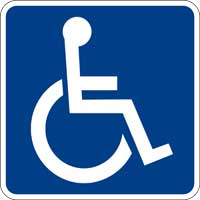San Diego International AirportDirectionsGetting to San Diego International Airport is easy from most major roadways. Be sure to monitor traffic conditions during certain times of the day. It is essential to allow yourself enough time for airline check-in and to pass through security. Arrive two (2) hours prior to domestic flight departures and three (3) hours prior to international flight departures. The Airport is served by I-5 with connections to State Route 163, I-8 and I-15. The following directions will help you arrive at your designated terminal on time. Addresses Directions Using Public TransportationThe San Diego Trolley and the Coaster commuter train do not stop at the Airport. The only public transit available is the Flyer Route No. 992 , a Metropolitan Transit System bus that travels between the Airport and downtown San Diego, stopping between Terminals 1 & 2 and the Commuter Terminal. The 10-minute bus service to and from downtown connects with Trolley, Coaster and Amtrak stations and is wheelchair accessible. San Diego International Airport offers travelers several long-term parking options. Each location offers quick and easy access and is conveniently located within close proximity of the airport terminals. All locations offer free shuttle service. For your safety and security, each parking facility is fenced, well lighted, paved, and open 24 hours. No reservations are required. SAN Park Harbor Drive3015 North Harbor Dr San Diego, CA 92101 290 Parking Stalls 2395 McCain Road San Diego, CA 92101 1,300 Parking Stalls Map/Directions (MapQuest estimate) Terminal to TerminalThe Red Bus provides complementary wheelchair-accessible transportation between the Airport's terminals. Buses run at intervals not to exceed 10 minutes. Designated Red Bus stops are located curbside at all three terminals. For additional information call Lindbergh Parking, Inc. at 619.291.1508. AirlinesHere are the airlines that serve San Diego International Airport. You can visit their web sites or call to make reservations. You can also access flight arrival and departure times (updated every 10 minutes) or plan a flight itinerary . |
|
| AeroMexico | |
| Air Canada | |
| AirTran Airways | |
| Alaska Airlines | |
| Alaska Commuter (Los Angeles flights only) | |
| Allegiant Air | |
| American Airlines | |
| American Eagle | |
| Continental Airlines | |
| Continental Connection (Los Angeles flights only) | |
| Delta Air Lines | |
Delta Connection (Los Angeles flights only) |
|
| Delta Connection (all other flights) | |
| ExpressJet Airlines | |
| Frontier Airlines | |
| Hawaiian Airlines | |
| JetBlue Airways | |
| Midwest Airlines | |
| Northwest Airlines | |
| Southwest Airlines | |
| Sun Country Airlines | |
| United Airlines | |
| United Express (Los Angeles flights only) | |
| US Airways | |
| US Airways Express | |
| Virgin America | |
| WestJet (Summer only) | |
| Zoom Airlines UK |
History of the Airport
From Lindbergh Field to San Diego International Airport In 1927, Charles A. Lindbergh electrified the world when he made San Diego the starting point for the first-ever solo, nonstop transatlantic flight. In his Spirit of San Diego , Lindbergh took off from Dutch Flat bound for St. Louis, New York and Paris, France. Lindbergh later agreed to lend his name to a proposed new airport: San Diego Municipal Airport - Lindbergh Field.Early aviation supporters saw their efforts rise from the mud when construction began on the long anticipated municipal airport. A cast of public and private agencies, military officers, politicians, philanthropists, and engineers worked tirelessly to build upon the muddy ground that gave birth to San Diego International Airport on its Dedication Day, August 16, 1928.
On June 1, 1930, the San Diego-Los Angeles airmail route was initiated, becoming the airport's major selling point for local government. At 5 o'clock sharp, the first airmail plane left the only building at the airport and raced down the runway, marking the beginning of a new era for San Diego.
At the outbreak of World War II, and as San Diego's population boomed, the military transformed San Diego International Airport into a modern aviation transportation center. The U.S. Army Air Corps took over the airport in 1942, and Army engineers improved the existing runways to accommodate the heavy bombers churned out by San Diego's aircraft manufacturers during World War II.
The 8,750-foot "mega-runway" built to accommodate World War II-era long-range bombers made San Diego International Airport "jet-ready" long before United Airlines became the first airline to offer pure jet service in September 1960. American Airlines followed with their "Jet Ace" scheduled service to Dallas/Fort Worth a few weeks later. San Diego had entered the Jet Age.
Today, at the beginning of the 21st century, San Diego International Airport is the nation's busiest single runway commercial airport — serving over 17 million passengers in 2005, and servicing 18 airlines, seven airfreight companies, 16 airline support providers and 23 concessionaires. A far cry from the first, dusty runway and single terminal, San Diego International Airport now contributes nearly $5 billion annually to the regional economy.







